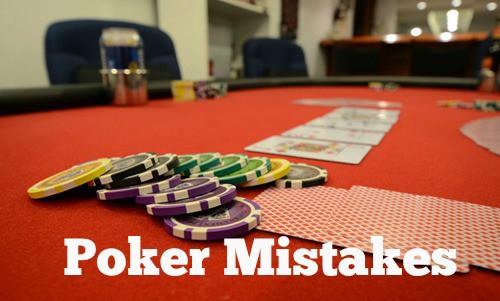
This interesting hand comes from a WSOP event with a buy-in of 1500 knives. When I got to this hand, I hardly got any good cards in the whole game, and even in the first three hours of the game, I only had three pots to play the flop.
In this case, if you get a relatively playable card, this is actually the time to bluff. In particular, if your image in the eyes of your opponents is very tight at this time, it will make them have the possibility of excessive folding on any street.
At this time, the game level is 100/200, and my yardstick is 10000. I'm charging J10 to 500 in the LJ bit.
To get a card like this in this position, normally, I would just fold it. But now that my image was tight, I decided to break the routine once.
BTN player call, this is a fierce player. The rest of the players folded their cards. Flop issued Q98 and I was so lucky to hit the nut card!
While it's okay to play slowly with a card at this time, it's better to bet. If you want to cross the cards, and then plan to cross the cards again - raise, the opponent will usually fold the cards, at this time all you can get is a small pot that has reached the flop. If you plan to cross-call and then expect your opponent to c-bet in the turn, you will most likely be disappointed, because the transfer is likely to be two crosses. Why? Because you flop your cards over the cards - call, the opponent will feel that you have a good hand that can play the showdown.
In general, passing the cards will cause the pot to be too small, and the bet will make the pot larger. When you hit a nut card and your opponent still has the possibility of hitting a pair, you should bet to make the pot bigger. Conversely, if you are holding QQ, you really should pass the card instead of placing a bet, because it is difficult for the opponent to hit the top pair at this time.
So, I put c-bet 700 in the pot of 1300 (actually I should have put more, like 1000). The opponent called very confidently.
Transfer issued 6.
It's the same thing as in the flop circle, at this time you shouldn't cross the card and then cross the card-raise, because the opponent will fold because of the strong card strength I showed; nor should I cross the card-call, because there is no guarantee that the opponent will bet on the next street (that is, the river card).
So, I bet 1500 on the pot of 2700. The opponent actually increased to 3800, which made me a little shocked.
At this time, I'm pretty sure he has a hand that he thinks is strong, maybe it's T7, QQ, 99, 88, Q9, or 98. Given that a J or 10 could drop a J or a 10 for a river card, it was possible that he would fold in the river deck, and since I wouldn't have much leverage left if I were to call, I decided to do it all.
However, even if I have a little more yardage, such as 10,000 left, I will still be able to do it all. My all-out is a clear indication of my strength, but my opponents are not afraid. He quickly called, and then showed KQ, which he had listened to to die of.
So, the way I played the cards in this hand was completely fine, the opponent played too badly! But more importantly, my style of play caused him to play so badly, otherwise he might have folded his cards long ago.
He didn't make a mistake in flipping and flop callbacks, but when I turned the cards, I placed a bet that I either had a hand that could crush KQ, or a relatively small number of cards to make up, or I was completely bluffing. Although in this hand he was destined to lose the big pot to me (unless he transferred the call and then the river folded), he really should have left me in the pot assuming my listening cards were not strong or bluffing. So, he's putting a bet on the turn.
So things got interesting. In the face of the opponent's increase, I chose to go all down. Although there were not many chips to pay for him at this time, I still felt that he should fold. My all-out hand is a direct indication that I have the best hand. When you've heard dead or can't win in your opponent's range, you should fold your cards no matter how reluctant you are. He should have called on the turn and left me in the pot.
In a minor or mid-level tournament, much of your potential profit comes from your opponent's mistakes. If you make relatively few mistakes and your opponents keep making big mistakes, in the long run, you will get a very objective profit, and you don't need to be too complicated at all!
That is to say, you have to stay in the pot and give your opponent the impression that you are willing to "let go" in order to "induce" your opponent to make a major mistake. If every time you bet and your opponent knows you've hit a nut card, they'll leave the pot and you'll have a hard time getting the opponent's chips.